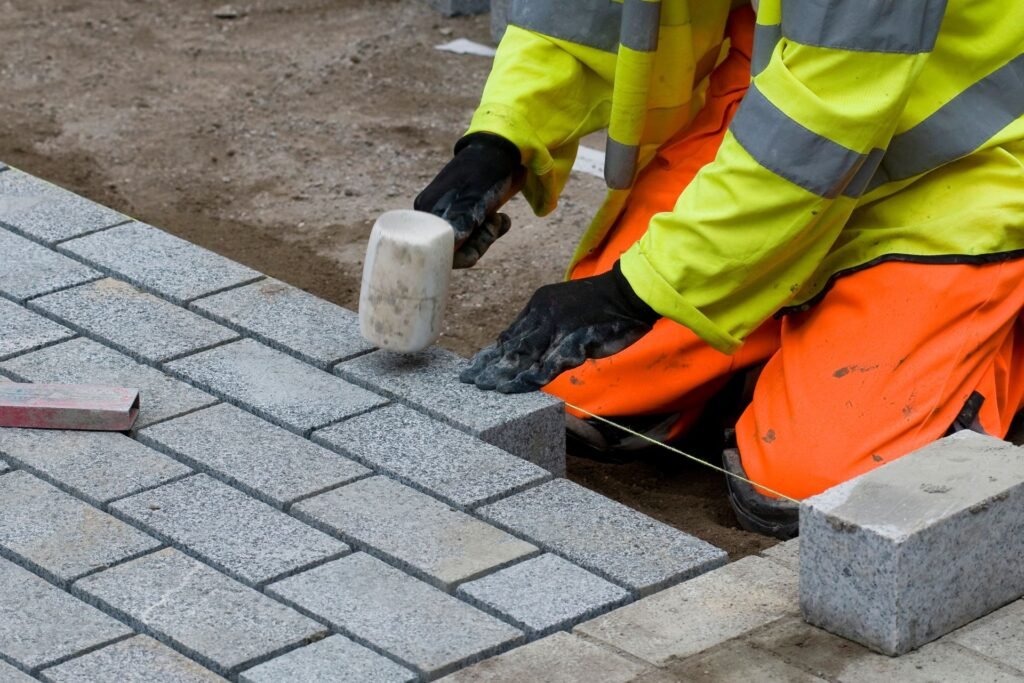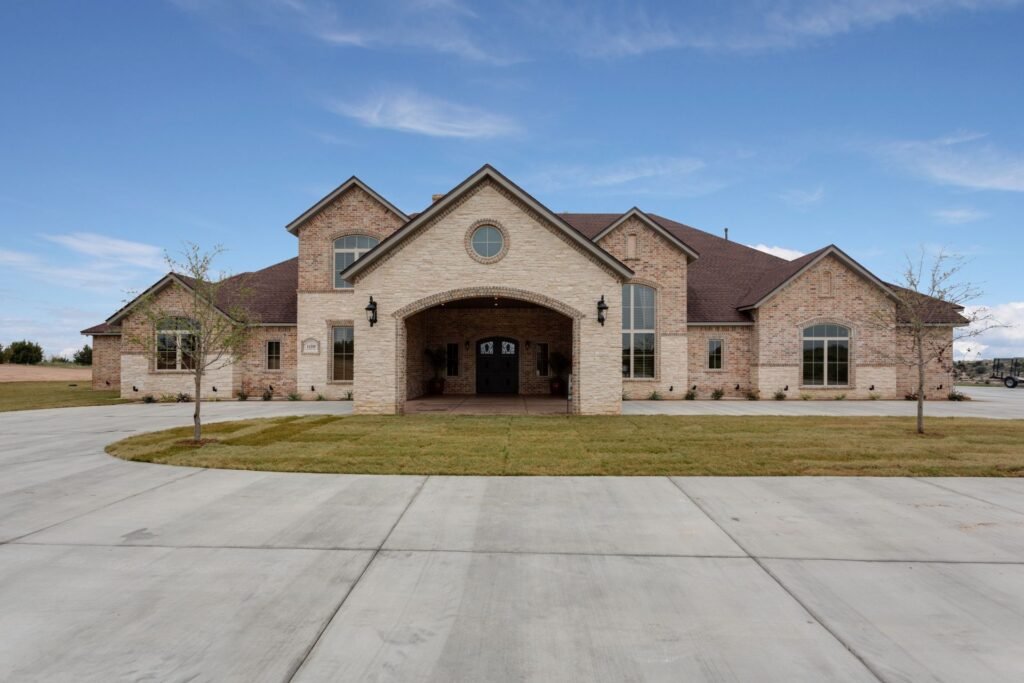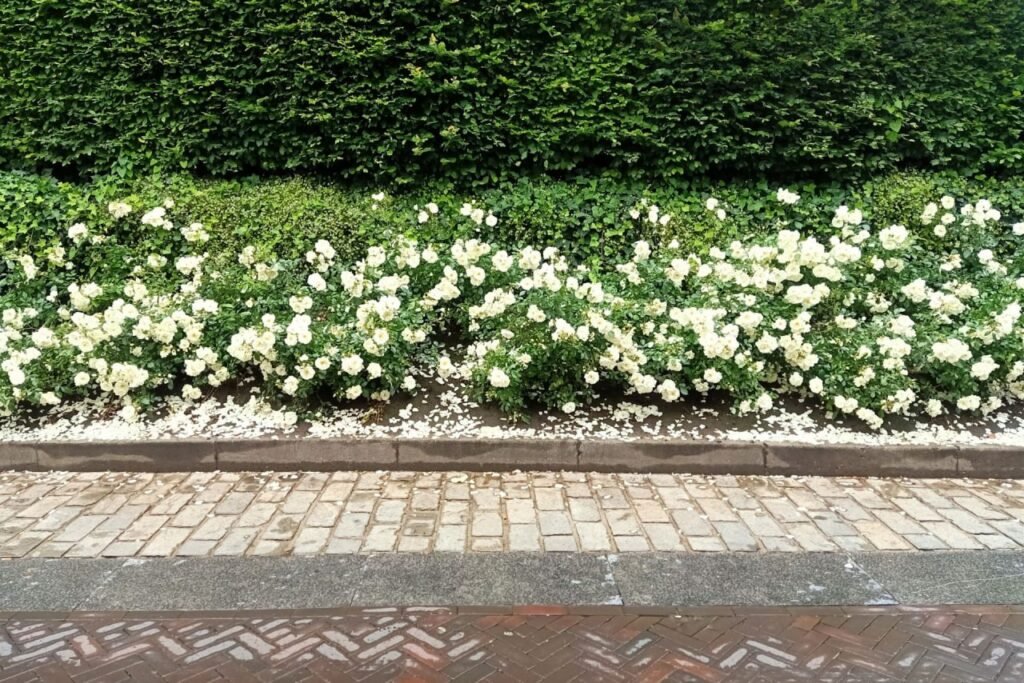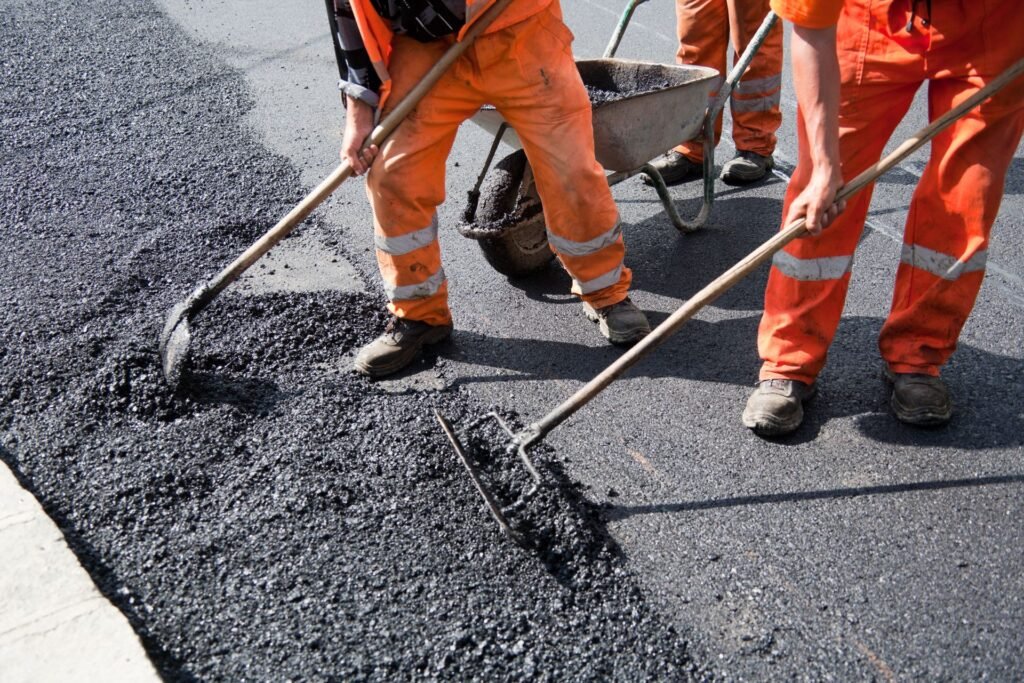Welcome to our comprehensive guide on concrete driveway finishes in New Zealand. Choosing the right finish for your driveway is crucial, not only for enhancing the aesthetic appeal of your home but also for ensuring durability and ease of maintenance. In this post, we’ll explore various concrete finishes, from the rugged charm of exposed aggregate to the sleek sophistication of polished concrete. Our goal is to provide you with the information you need to make an informed decision, tailored to your unique style and practical needs. Whether you’re building a new driveway or upgrading an existing one, understanding your options will help you achieve the perfect balance of beauty and functionality.
A concrete driveway in New Zealand can be finished in various styles to enhance both durability and aesthetics. Popular finishes include exposed aggregate for a decorative, slip-resistant surface, brushed concrete for a cost-effective and practical option, and stamped concrete which mimics high-end materials like brick or stone. Colored concrete allows for customized hues to match home exteriors, while polished concrete offers a sleek, modern look. Each finish has its benefits and considerations, making it essential to choose based on your specific needs and local climate conditions.
Table of Contents
Why Choose Concrete For Your Driveway?
Choosing the right material for your driveway is crucial, not only for functionality but also for enhancing the overall look of your property. Concrete driveways have gained popularity over the years for several compelling reasons. Let’s delve into why concrete might be the ideal choice for your driveway needs.
Durability and Longevity
One of the primary reasons homeowners opt for concrete driveways is their exceptional durability. Concrete is renowned for its strength and ability to withstand heavy loads, making it an excellent choice for driveways that endure the weight of multiple vehicles. Unlike asphalt, which can soften and crack under extreme heat, concrete remains robust and intact, even in harsh weather conditions.
Concrete driveways are also resistant to erosion and heavy traffic, ensuring that your driveway remains in good condition for many years. This long-lasting quality means that once you invest in a concrete driveway, you won’t have to worry about frequent repairs or replacements, saving you time and money in the long run.
Aesthetic Appeal
Beyond its functional benefits, concrete offers impressive aesthetic versatility. With a variety of finishes and styles available, you can customize your concrete driveway to complement the design of your home. Whether you prefer a smooth, polished look or a textured, stamped finish, concrete can be tailored to meet your aesthetic preferences.
Stamped concrete, for example, can mimic the appearance of brick, stone, or even wood, providing a high-end look without the high cost. Additionally, concrete can be tinted in various colors, allowing you to create a unique and visually appealing driveway that enhances your property’s curb appeal.
Low Maintenance
Concrete driveways are not only durable and attractive but also incredibly low maintenance. Unlike gravel driveways that require regular re-leveling and asphalt driveways that need periodic sealing, concrete driveways are relatively hassle-free.
To maintain the pristine look of your concrete driveway, all you need is occasional cleaning with water and mild detergent to remove dirt and debris. Sealing your driveway every few years can help protect it from stains and extend its lifespan. However, even without frequent sealing, concrete driveways are highly resistant to stains, oil spills, and other common driveway contaminants.
In conclusion, concrete driveways offer a perfect blend of durability, aesthetic appeal, and low maintenance. They are a wise investment for any homeowner looking to enhance the functionality and beauty of their property. With minimal upkeep and long-lasting performance, concrete driveways provide excellent value, making them a top choice for modern homes.

Popular Concrete Driveway Finishes In NZ
When it comes to enhancing the curb appeal and functionality of your driveway, choosing the right concrete finish is crucial. Concrete driveway finishes not only improve the aesthetic appeal of your property but also add to the durability and longevity of the driveway. In New Zealand, where the climate can be quite variable, selecting a finish that can withstand the local weather conditions is essential. Let’s delve into the popular concrete driveway finishes available in NZ and understand why they might be the perfect choice for your home.
Concrete finishes refer to the various techniques and materials used to treat the surface of a freshly laid concrete driveway. These finishes can range from smooth, polished surfaces to textured, decorative patterns. Each type of finish has its own unique set of benefits, catering to different aesthetic preferences and functional needs. For instance, a textured finish might offer better traction and be more slip-resistant, which is particularly useful in areas that receive a lot of rain.
Moreover, the right finish can significantly enhance the visual appeal of your driveway. Imagine pulling up to a home with a sleek, modern driveway that perfectly complements the architecture of the house. The driveway is often one of the first things people notice, and a well-chosen finish can make a lasting impression.
Additionally, the maintenance requirements of your driveway can be influenced by the type of finish you choose. Some finishes are easier to clean and maintain, making them ideal for busy homeowners who want a beautiful driveway without a lot of upkeep.
In summary, selecting the right concrete finish for your driveway in New Zealand involves considering factors like aesthetic appeal, functionality, and maintenance needs. With a variety of options available, homeowners can find a finish that perfectly matches their style and practical requirements. In the following sections, we will explore some of the most popular concrete driveway finishes in NZ, detailing their features, benefits, and potential drawbacks to help you make an informed decision.

Exposed Aggregate Finish
Description
An exposed aggregate finish is a type of concrete surface where the top layer of cement paste is removed to reveal the underlying aggregate. This technique creates a visually appealing texture and adds a decorative element to plain concrete surfaces. The process of achieving an exposed aggregate finish involves several steps. First, the concrete is poured and leveled as usual. While the concrete is still wet, a surface retarder is applied to slow the setting process of the top layer. After the concrete has set but is still workable, the top layer of cement paste is carefully washed away using water and a brush or hose, exposing the aggregate underneath. The result is a unique, textured surface that showcases the natural beauty of the stones or gravel used in the mix.
Pros
- Durability: Exposed aggregate finishes are highly durable and can withstand heavy traffic and harsh weather conditions. The exposed stones provide additional strength and resistance to wear and tear, making it an excellent choice for high-traffic areas like driveways and walkways.
- Slip Resistance: The textured surface of an exposed aggregate finish offers excellent slip resistance, which is particularly beneficial for outdoor surfaces that may become wet or icy. This makes it a safer option for driveways, pool decks, and other areas where traction is important.
- Aesthetic Appeal: One of the most significant advantages of an exposed aggregate finish is its aesthetic appeal. The exposed stones create a unique, decorative look that can be customized by choosing different types and colors of aggregate. This allows homeowners to achieve a personalized look that complements their property’s style and landscape.
Cons
- Potential Roughness: While the textured surface provides slip resistance, it can also be rough on bare feet. This may be a consideration for areas where people frequently walk without shoes, such as around swimming pools.
- Higher Initial Cost: The process of creating an exposed aggregate finish involves additional steps and labor compared to standard concrete surfaces. This can result in higher initial costs. However, many homeowners find that the long-term durability and aesthetic benefits justify the investment.
Ideal Use Cases
Exposed aggregate finishes are best suited for homeowners who want a decorative yet durable driveway option. They are also ideal for patios, pool decks, and walkways where slip resistance and visual appeal are important. This finish is perfect for those looking to add a unique, custom touch to their outdoor spaces while ensuring longevity and low maintenance. Whether you’re aiming to enhance the curb appeal of your driveway or create a safe, attractive poolside area, an exposed aggregate finish offers a versatile and practical solution.

Brushed Concrete Finish
Description
A brushed concrete finish, also known as a broom finish, is achieved by dragging a broom or brush across the surface of the freshly poured concrete before it fully sets. This method creates a textured surface that enhances traction. The process starts with pouring and leveling the concrete, followed by waiting for the surface moisture to evaporate. Once the concrete reaches the appropriate level of firmness, a broom is pulled across the surface, typically in a single direction to create uniform lines. This method is straightforward and can be performed by professionals or DIY enthusiasts.
Pros
- Good Traction: The textured surface of brushed concrete provides excellent traction, making it a safe option for walkways, driveways, and other high-traffic areas. This is particularly beneficial in wet or icy conditions, reducing the risk of slips and falls.
- Simple to Create: The process of creating a brushed finish is relatively simple and does not require specialized tools or skills. This makes it an accessible option for many homeowners and contractors.
- Cost-Effective: Compared to other decorative concrete finishes, a brushed finish is cost-effective. It requires minimal additional materials and labor, making it a budget-friendly choice for large areas.
Cons
- Frequent Cleaning: The textured surface of brushed concrete can accumulate dirt and debris more easily than smoother finishes. This means it may require more frequent cleaning to maintain its appearance. Regular sweeping and occasional power washing can help keep it looking clean and fresh.
- Limited Aesthetic Appeal: While practical, a brushed concrete finish may not offer the same aesthetic appeal as more decorative finishes like stamped or stained concrete. It is primarily chosen for its functionality rather than its visual appeal.
Ideal Use Cases
A brushed concrete finish is ideal for practical, budget-conscious homeowners. It is a perfect choice for driveways, sidewalks, patios, and pool decks where safety and functionality are the primary concerns. The good traction provided by the textured surface makes it especially suitable for areas that are prone to getting wet. For homeowners looking for a straightforward, cost-effective solution that offers durability and safety, a brushed concrete finish is a wise choice.
In summary, a brushed concrete finish offers a practical, cost-effective option for various outdoor surfaces, providing excellent traction and safety with minimal installation effort. Regular maintenance will ensure it continues to look its best, making it a smart choice for those prioritizing function and budget.
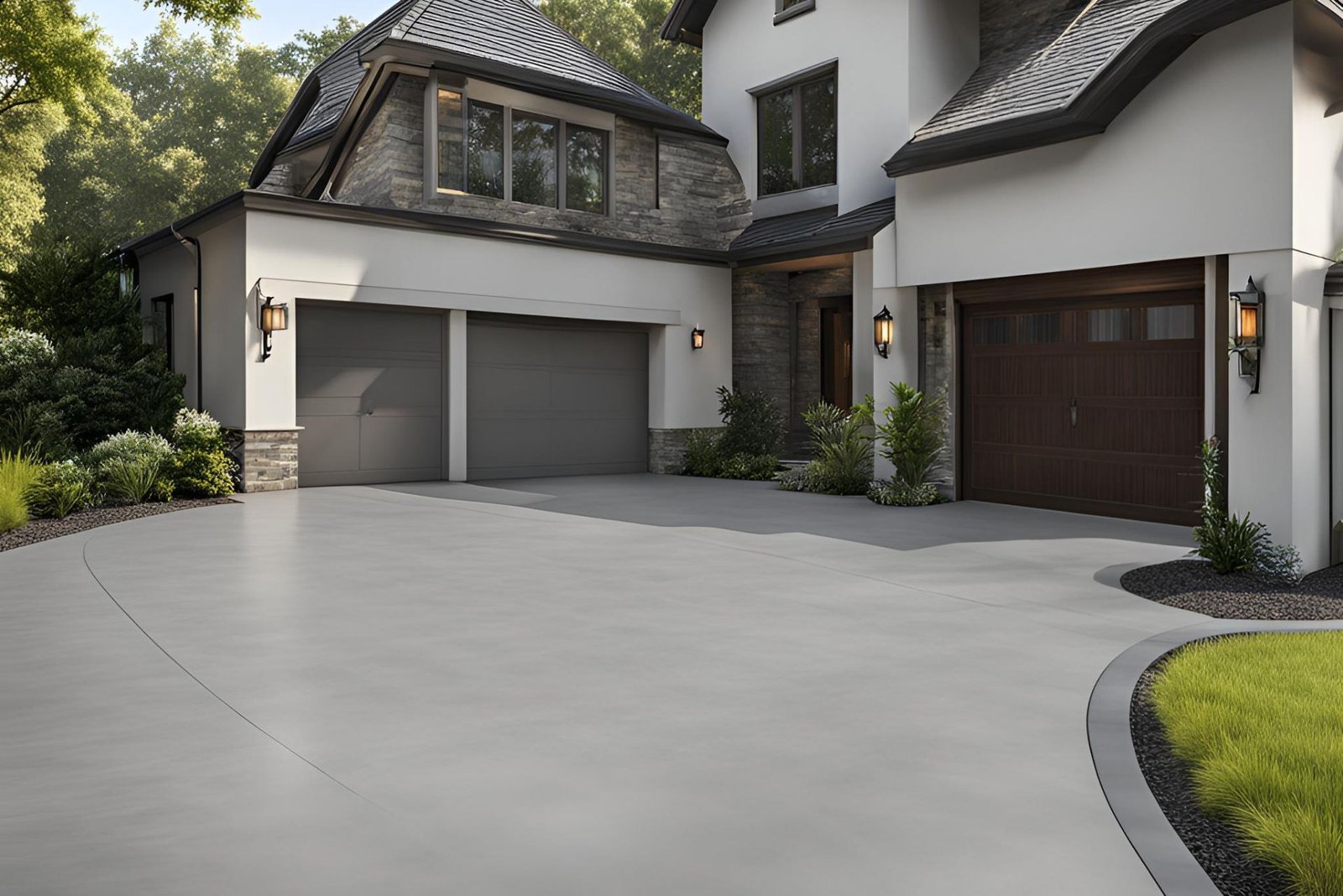
Stamped Concrete Finish
Description
A stamped concrete finish is a decorative technique where freshly poured concrete is imprinted with patterns to mimic the appearance of high-end materials like brick, slate, stone, tile, or even wood. This method involves pressing molds into the wet concrete to create textures and designs. The result is a visually appealing surface that combines the durability of concrete with the aesthetic appeal of other materials. The variety of patterns available is vast, offering endless possibilities for customization. Homeowners can choose from an array of designs and colors to match their unique style preferences, making it a popular choice for enhancing the visual appeal of driveways, patios, and walkways.
Pros
- Versatility in Design: One of the standout benefits of a stamped concrete finish is its versatility. The ability to choose from numerous patterns and colors allows for a high degree of customization, enabling homeowners to achieve the exact look they desire. Whether you’re aiming for a classic cobblestone appearance, a sleek modern slate, or a rustic wood plank look, stamped concrete can deliver.
- Mimics High-End Materials: Stamped concrete can closely resemble more expensive materials like natural stone, brick, or wood, offering a high-end look without the associated cost. This makes it an attractive option for those wanting to elevate the aesthetic appeal of their outdoor spaces without breaking the bank.
- Adds Value: Investing in a stamped concrete finish can significantly enhance the curb appeal of your property, potentially increasing its market value. A beautifully designed driveway or patio not only creates a great first impression but also adds to the overall attractiveness of your home.
Cons
- Higher Cost: While stamped concrete is generally more affordable than natural stone or brick, it is still more expensive than standard concrete. The additional labor and materials required for the stamping process contribute to the higher cost. However, many homeowners find the investment worthwhile given the aesthetic and functional benefits.
- Potential for Cracking: Like any concrete surface, stamped concrete can crack, particularly if it is not properly installed. Factors such as poor base preparation, improper curing, or significant ground movement can lead to cracking. To mitigate this risk, it’s crucial to hire experienced professionals who follow best practices for stamped concrete installation.
Ideal Use Cases
Stamped concrete is ideal for homeowners seeking a custom, high-end look for their driveways, patios, or walkways. It is perfect for those who want the appearance of expensive materials without the high cost and maintenance. The versatility of design makes it suitable for a wide range of architectural styles, from modern to traditional. Additionally, its durability and long-lasting nature make it a practical choice for high-traffic areas.
In conclusion, a stamped concrete finish offers an excellent blend of aesthetic appeal and durability. While it may come with a higher upfront cost and potential for cracking, its ability to mimic high-end materials and add significant value to your property makes it a worthwhile investment. For those aiming to enhance the beauty and functionality of their outdoor spaces, stamped concrete is a versatile and attractive option.

Colored Concrete Finish
Description
Adding color to concrete is a transformative process that can significantly enhance the aesthetic appeal of any property. This process involves integrating pigments directly into the concrete mixture before it is poured. These pigments come in a wide range of colors, from subtle earth tones to vibrant hues, allowing for extensive customization. The color options can be tailored to match the surrounding environment or specific design preferences, offering homeowners a unique way to personalize their driveways.
Pros
- Customization: One of the standout benefits of colored concrete is its ability to be customized to fit any design vision. Whether you prefer the look of natural stone, brick, or a bold modern color, there is a pigment available to achieve that effect. This flexibility ensures that your driveway can seamlessly blend with or enhance the overall aesthetic of your property.
- Enhanced Curb Appeal: A well-chosen colored concrete finish can dramatically boost the curb appeal of your home. It provides a polished, professional look that can make a significant difference in the first impression your property makes. This can be particularly advantageous if you plan to sell your home, as it can increase perceived value and attract potential buyers.
- UV Resistance: High-quality colored concrete finishes are designed to resist UV rays, which means the color will stay vibrant and won’t degrade as quickly under the sun. This is especially important in areas with high sun exposure, ensuring that your driveway remains fresh and new for longer periods.
Cons
- Potential for Color Fading Over Time: Despite advancements in UV resistance, there is still a potential for the color to fade over time. Factors such as exposure to harsh weather conditions, frequent traffic, and improper maintenance can accelerate this process. Regular sealing and proper care can help mitigate this issue, but it is something to be aware of when choosing colored concrete.
Ideal Use Cases
Colored concrete is an excellent choice for homeowners who want to enhance the visual appeal of their property. It is particularly well-suited for driveways where the homeowner wants to create a cohesive look with the home’s exterior. Whether you have a modern, contemporary, or traditional home, the wide range of available colors allows for a perfect match. Additionally, colored concrete can be used in patios, walkways, and pool decks, providing a consistent and attractive look throughout your outdoor spaces.
In conclusion, colored concrete finishes offer a versatile and visually appealing option for those looking to customize their driveways. With its ability to enhance curb appeal and offer extensive customization, it is a popular choice among homeowners. However, it is essential to consider the potential for color fading and ensure proper maintenance to keep your driveway looking its best.

Polished Concrete Finish
Description:
A polished concrete finish transforms ordinary concrete into a stunning, smooth, and glossy surface. The process begins with grinding the concrete using progressively finer abrasives. This grinding process removes imperfections and achieves the desired level of smoothness. Once the surface is smooth, a chemical hardener is applied to densify the concrete, which makes it more durable and stain-resistant. The final step involves polishing the surface with finer grits, resulting in a high-gloss finish that resembles polished stone or marble.
Pro
- Sleek Look: Polished concrete offers a modern, sophisticated aesthetic that can elevate the appearance of any space. Its glossy finish reflects light, enhancing the overall brightness and elegance of the area.
- Easy to Clean: The smooth, non-porous surface of polished concrete makes it incredibly easy to clean. Dust and debris can be easily swept or mopped away, and spills are less likely to penetrate the surface, preventing stains.
- Durable: Polished concrete is highly durable and can withstand heavy traffic and daily wear and tear. Its strength and resilience make it an excellent choice for driveways and other high-traffic areas.
Cons
- Can Be Slippery When Wet: One of the drawbacks of polished concrete is its potential to become slippery when wet. This can pose a safety hazard, especially in areas exposed to moisture. To mitigate this, anti-slip treatments or mats can be used in high-risk areas.
- May Require Occasional Resealing: Over time, the sealant protecting the polished surface may wear down, necessitating occasional resealing to maintain its glossy appearance and protective qualities.
Ideal Use Cases
Polished concrete is an ideal choice for modern homes that seek a sophisticated and stylish driveway finish. Its sleek and shiny appearance complements contemporary architectural designs, adding a touch of elegance and class to the exterior. Additionally, its durability and low maintenance make it perfect for busy households looking for a practical yet beautiful driveway solution.
In summary, a polished concrete finish not only enhances the aesthetic appeal of your driveway but also provides a durable and easy-to-maintain surface. While it may require some occasional upkeep and can be slippery when wet, its numerous benefits make it a popular choice for homeowners aiming for a chic and modern look.

Salt Finish Concrete
Description
A salt finish on concrete is a unique and aesthetically pleasing technique that involves embedding coarse rock salt into the surface of freshly laid concrete. Once the concrete has set, the salt is washed away, leaving a speckled pattern of tiny indentations. This creates a distinctive and textured surface that looks appealing and offers practical benefits. The process is straightforward but requires precision to ensure an even and attractive finish.
Pros
- Unique Texture: The indentations left by the salt provide a distinctive look that stands out from traditional smooth concrete surfaces. This textured appearance can add significant visual interest to any driveway or patio.
- Slip Resistance: The irregular surface created by the salt finish enhances traction, making it a safer option for areas that might get wet, such as pool decks or driveways. This slip-resistant quality is especially beneficial in preventing accidents.
- Visual Interest: The speckled effect created by the salt finish adds a decorative element to concrete surfaces. This finish can be customized with different colors and designs to match the aesthetic preferences of the homeowner, making it a versatile choice for various architectural styles.
Cons
- Limited to Certain Climates: Salt finish concrete is best suited for warmer climates. In areas with freeze-thaw cycles, the indentations can trap water, which may freeze and expand, causing the concrete to crack or spell. Therefore, it’s essential to consider the local climate before opting for this finish.
- Periodic Maintenance: Although salt finish concrete is durable, it does require occasional maintenance to keep it looking its best. Over time, the surface might need resealing to protect against stains and wear. Additionally, the indentations can accumulate dirt and debris, necessitating regular cleaning.
Ideal Use Cases
Salt finish concrete is an excellent choice for homeowners who want a driveway that is both practical and visually appealing. The unique texture and slip resistance make it ideal for areas that are frequently wet, such as around swimming pools or in regions with occasional rainfall. Its decorative appeal also makes it suitable for patios, walkways, and other outdoor spaces where aesthetics are important. For those living in warmer climates, salt finish concrete offers a durable and attractive option that combines functionality with a touch of artistic flair.
By choosing a salt finish for your concrete surfaces, you can enjoy the benefits of a distinctive and slip-resistant texture that enhances both the safety and appearance of your outdoor spaces. Whether you’re looking to upgrade your driveway or create a stylish patio, salt finish concrete is a versatile and practical solution that adds value and curb appeal to your home.

How To Choose The Right Finish For Your Concrete Driveway
Choosing the right finish for your concrete driveway is a crucial decision that impacts the overall look and durability of your driveway. Here are some key factors to consider:
Consider Your Home’s Style
When selecting a finish for your concrete driveway, the first thing to consider is the architectural style of your home. A well-matched finish can enhance your home’s curb appeal, while a mismatched one can detract from it. For instance, if you have a modern home, a sleek, polished concrete finish might be ideal. On the other hand, a rustic or traditional home may benefit from a stamped or textured finish that mimics natural stone or brick. By harmonizing your driveway with your home’s aesthetic, you create a cohesive and attractive look that boosts your property’s overall appeal.
Climate and Weather Conditions
The climate and weather conditions in your area play a significant role in determining the best finish for your concrete driveway. If you live in a region with harsh winters, a finish that provides good traction, such as a broom finish, is essential to prevent slips and falls. Conversely, in warmer climates, a smooth or stained finish might be more appropriate. Additionally, certain finishes are more resistant to weather-related damage, such as freeze-thaw cycles or intense UV exposure. By considering your local climate, you can choose a finish that not only looks good but also stands up to the elements.
Budget Considerations
Your budget is another important factor when choosing a driveway finish. Some finishes, like a basic broom or trowel finishes, are more affordable, while decorative options like stamped or colored concrete can be more expensive. It’s essential to weigh the cost against the benefits of each finish. For example, while a stamped finish may have a higher upfront cost, it can add significant value to your property and may reduce maintenance costs in the long run. By understanding the financial implications of each option, you can make a choice that aligns with your budget while still meeting your aesthetic and functional needs.
Maintenance Requirements
Different finishes have varying maintenance needs, which should be a key consideration in your decision-making process. A polished or sealed concrete finish may require regular resealing to maintain its appearance and protect it from stains and wear. In contrast, a broom finish is relatively low-maintenance, only requiring occasional cleaning to remove dirt and debris. Additionally, some decorative finishes may require specific cleaning products or techniques to prevent damage. By considering the long-term maintenance requirements of each finish, you can choose an option that fits your lifestyle and ensures your driveway remains in excellent condition for years to come.
Selecting the right finish for your concrete driveway involves considering your home’s style, local climate, budget, and maintenance requirements. By carefully evaluating these factors, you can choose a finish that not only enhances the appearance of your home but also provides durability and ease of maintenance. Investing time in making the right choice will ensure your driveway remains a valuable and attractive part of your property.

Professional Installation Vs. DIY
When it comes to enhancing your home’s functionality and aesthetics, the choice between professional installation and a DIY approach can be a significant decision. Each option has its own set of advantages and challenges. This section delves into the benefits of hiring professionals versus taking the DIY route, offering insights to help you make an informed choice.
Benefits of Hiring Professionals
Expertise
Hiring professionals means you are enlisting the help of individuals with extensive training and experience in their field. These experts have honed their skills over the years, ensuring that they can handle complex tasks with ease. Their in-depth knowledge allows them to anticipate potential problems and address them before they become significant issues, ensuring a smooth and efficient process.
Quality of Work
Professionals take pride in delivering high-quality work that meets industry standards. Their craftsmanship is often superior to what a typical DIY enthusiast can achieve. By hiring professionals, you can be assured of a polished finish that enhances the overall appearance and value of your property. Quality work also means longevity, reducing the need for frequent repairs or replacements.
Potential Cost Savings in the Long Run
While hiring professionals might seem more expensive upfront, it can save you money over time. DIY projects often come with hidden costs, such as the need to purchase specialized tools or materials that you might never use again. Additionally, mistakes made during a DIY project can be costly to fix. Professionals, on the other hand, have access to the right tools and materials and can complete the job correctly the first time, minimizing the risk of costly errors.
DIY Tips
If you decide to take on a project yourself, here are some essential tips to ensure success:
Plan Thoroughly
Before starting any DIY project, spend ample time planning. Understand the scope of the work, gather all necessary materials, and ensure you have the right tools. A detailed plan will help you avoid last-minute trips to the store and keep your project on track.
Start Small
If you’re new to DIY, start with smaller projects to build your confidence and skills. Tackling a complex project without experience can lead to frustration and potential mistakes. Simple tasks like painting a room or assembling furniture are good starting points.
Follow Safety Precautions
Safety should be a top priority in any DIY project. Wear appropriate protective gear, such as gloves, goggles, and masks. Follow instructions carefully, especially when using power tools or hazardous materials. Taking these precautions can prevent accidents and injuries.
Seek Help When Needed
Don’t hesitate to ask for help if you encounter difficulties. Online forums, instructional videos, and DIY communities can offer valuable advice and support. Sometimes, having a friend or family member assist you can make the process more manageable and enjoyable.
Be Patient
DIY projects can be time-consuming, especially if you’re learning as you go. Patience is key to achieving good results. Take your time to do the job right rather than rushing and making mistakes. Remember, the goal is not just to complete the project but to do it well.
In conclusion, the choice between professional installation and DIY depends on various factors, including your budget, skills, and the complexity of the project. While professionals offer expertise, quality, and potential long-term savings, DIY can be a rewarding and cost-effective option if approached with proper planning and caution. Consider these points carefully to make the best decision for your home improvement needs.
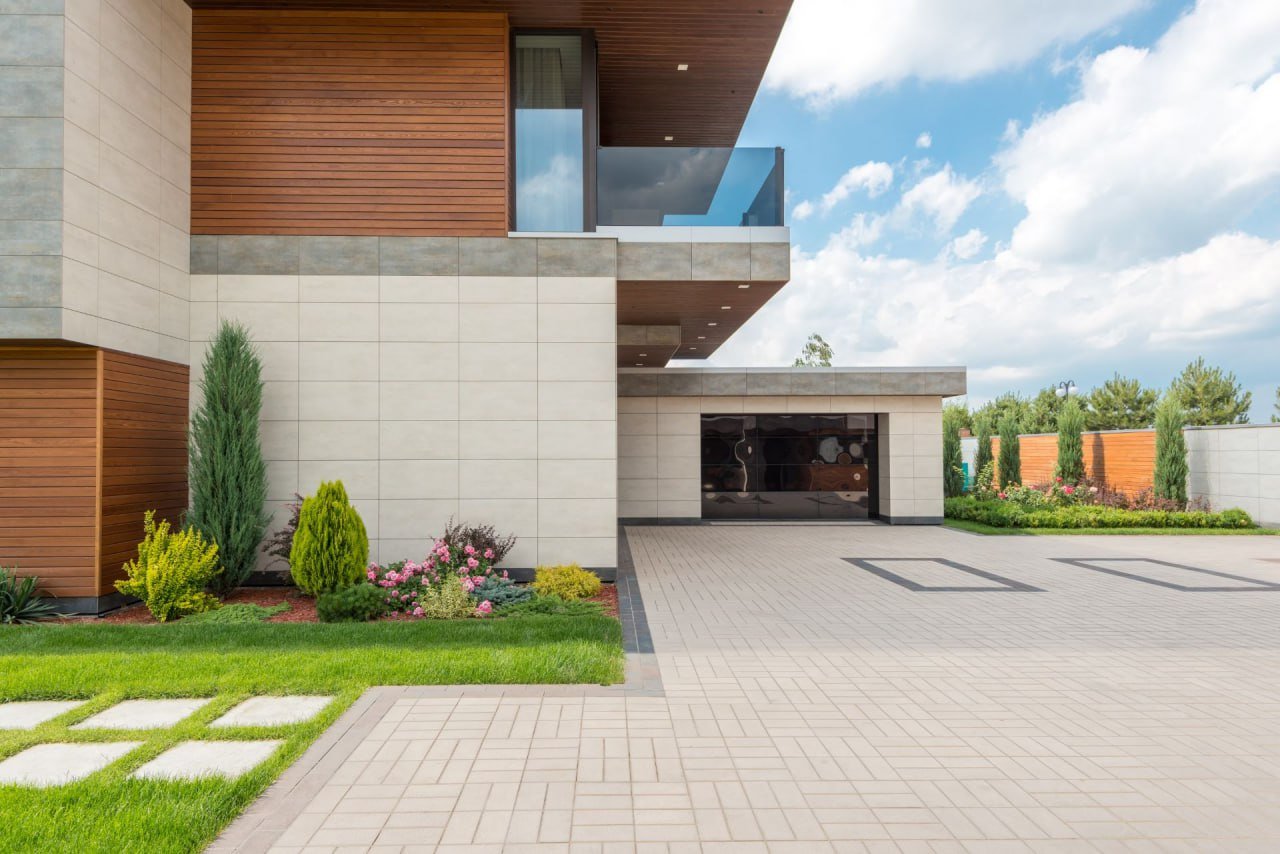
FAQs: About The Concrete Driveway Finishes NZ
What are the most popular concrete driveway finishes in New Zealand?
The most popular concrete driveway finishes in New Zealand include exposed aggregate, brushed concrete, stamped concrete, colored concrete, polished concrete, and salt finish concrete. Each finish offers unique aesthetic and practical benefits.
How is an exposed aggregate finish achieved?
An exposed aggregate finish is achieved by removing the top layer of cement paste to reveal the underlying aggregate. This is typically done by washing the surface with water before it sets, or by using a chemical surface retarder.
What are the benefits of a brushed concrete finish?
A brushed concrete finish provides excellent traction, making it a safe option for driveways. It is also relatively simple and cost-effective to create, making it a popular choice for budget-conscious homeowners.
Can stamped concrete mimic other materials?
Yes, stamped concrete can mimic a variety of high-end materials such as brick, stone, slate, and even wood. This versatility allows homeowners to achieve a custom, high-end look without the associated costs.
Does colored concrete fade over time?
Colored concrete can fade over time due to exposure to UV rays and weather conditions. However, using high-quality pigments and applying a protective sealant can significantly reduce the rate of fading.
Is polished concrete slippery when wet?
Polished concrete can be slippery when wet due to its smooth, glossy surface. To mitigate this, anti-slip additives can be incorporated into the sealant, or a less polished finish can be chosen.
What is a salt-finish concrete driveway?
A salt-finish concrete driveway is created by applying rock salt to the surface of wet concrete and then washing it off once the concrete sets. This process leaves a unique, slightly textured finish that offers good slip resistance.
How do I choose the right concrete finish for my driveway?
To choose the right concrete finish, consider factors such as your home’s architectural style, local climate conditions, budget, and maintenance preferences. Each finish has different characteristics that may suit your needs better than others.
Should I hire a professional for my concrete driveway finish?
Hiring a professional is recommended for achieving the best results. Professionals have the expertise and equipment to ensure a high-quality finish. While DIY options are available, they require significant skill and knowledge to execute properly.
How often do concrete driveway finishes need maintenance?
The frequency of maintenance depends on the type of finish. For example, polished and colored concrete may require resealing every few years, while brushed and exposed aggregate finishes may need less frequent attention. Regular cleaning and prompt repair of any cracks can extend the lifespan of your concrete driveway.
Conclusion
We’ve explored the various aspects of choosing the right concrete driveway finish, from understanding different types and their benefits to considering factors like durability, aesthetics, and maintenance. Remember, selecting the perfect finish for your driveway hinges on your specific needs and preferences, whether you prioritize a sleek, modern look or a more traditional, rugged finish. We encourage you to reflect on what matters most for your driveway project and make an informed decision. Don’t hesitate to reach out to local contractors for personalized consultations or quotes to ensure the best outcome. For more information and resources, feel free to explore the provided links and deepen your understanding of concrete driveway finishes.
About the Author:
Mike Veail is a recognized digital marketing expert with over 6 years of experience in helping tradespeople and small businesses thrive online. A former quantity surveyor, Mike combines deep industry knowledge with hands-on expertise in SEO and Google Ads. His marketing strategies are tailored to the specific needs of the trades sector, helping businesses increase visibility and generate more leads through proven, ethical methods.
Mike has successfully partnered with numerous companies, establishing a track record of delivering measurable results. His work has been featured across various platforms that showcase his expertise in lead generation and online marketing for the trades sector.
Learn more about Mike's experience and services at https://theleadguy.online or follow him on social media:



